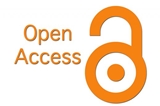Interrogatives marked with qué and qué no in Mexcan Spanish: the degree of their epistemic bias
DOI:
https://doi.org/10.24201/clecm.v11i00.295Keywords:
marked polar questions, epistemic gradient, epistemic bias, evidential bias, Spanish polar questionsAbstract
Within the paradigm of Spanish polar interrogative constructions, the interrogatives marked with qué used in Mexican Spanish (¿Qué Julia llamó?, ¿qué Julia no llamó?, ¿qué no Julia llamó?) have not been studied so far. This article analyzes the non-propositional meaning of these constructions based on the theoretical proposal by Sudo (2013). It is shown that the two proposed biases, epistemic bias and evidential bias, are necessary for the analysis of these polar interrogatives, but are insufficient to capture the differences between the two negative polar interrogatives. The paper proposes that these interrogative constructions differ in the degree of their epistemic bias: both require positive belief, but with different degrees of certainty.
Downloads
References
Ariel, Mira. 2008. Pragmatics and grammar. Cambridge: Cambridge University Press. DOI: https://doi.org/10.1017/CBO9780511791314
Armstrong, Meghan E. 2017. Accounting for intonational form and function in Puerto Rican Spanish polar questions. Probus 29. 1–40. https://doi.org/10.1515/probus-2014-0016 DOI: https://doi.org/10.1515/probus-2014-0016
Büring, Daniel & Gunlogson, Christine. 2000. Aren’t positive and negative polar questions the same? https://semanticsarchive.net/Archive/ mYwOGNhO/polar_questions.pdf (consultado el 30/06/2023)
Carlson, Lauri. 1983. Dialogue games. An approach to discourse analysis. Dordrecht: Reidel. DOI: https://doi.org/10.1007/978-94-015-3963-0_9
Casado Velarde, Manuel. 2013. ¿Multiculturaliqué? La interrogación ecoica con ¿-qué? en español y sus funciones discursivas. Oralia 16. 1971–1976. DOI: https://doi.org/10.25115/oralia.v16i1.8030
Dumitrescu, Domnita. 1992. Estructura y función de las preguntas retóricas repetitivas en español. En Villegas, Juan. (coord.), Actas Irvine-92: Actas del XI Congreso de la Asociación Internacional de Hispanistas. 139-147. Irvine: Universidad de California
Eguren, Luis & Sánchez López, Cristina. 2023. Los pronombres interrogativos complejos del español el qué y lo qué. Zeitschrift für romanische Philologie 139(3). 711–745. https://doi.org/10.1515/zrp-2023-0027 DOI: https://doi.org/10.1515/zrp-2023-0027
Escandell Vidal, María Victoria. 1987. La interrogación en español. Semántica y pragmática. Madrid: Universidad Complutense. (Tesis de doctorado.)
Escandell Vidal, María Victoria. 1999. Los enunciados interrogativos. aspectos semánticos y pragmáticos. En Demonte, Violeta & Bosque, Ignacio (ed.), Gramática descriptiva de la lengua española, vol. 3. 3929–3992. Madrid: Espasa.
Escandell Vidal, María Victoria. 2002. Echo-syntax and metarepresentations. Lingua 112. 871–900. https://doi.org/10.1016/S0024-3841(02)00051-7 DOI: https://doi.org/10.1016/S0024-3841(02)00051-7
Escandell-Vidal, María Victoria. 2017. Intonation and evidentiality in Spanish polar interrogatives. Language & Speech 60(2). 224–241. https://doi.org/10.1177/0023830917698178 DOI: https://doi.org/10.1177/0023830917698178
Fernández Ramírez, Salvador. 1959. Oraciones interrogativas españolas.
Boletín de la Real Academia Española 39. 243–276.
Gili Gaya, Samuel. 1980. Curso superior de sintaxis española. Madrid: Vox.
Gutzmann, Daniel. 2013. Expressives and beyond: an introduc-tion to varieties of use-conditional meaning. En Gutzmann, Da- niel & Gärtner, Hans-Martin (eds.), Beyond expressives: explorations in use-conditional meaning, 1–58. Leiden: Brill. https://doi.org/10.1163/9789004183988_002 DOI: https://doi.org/10.1163/9789004183988_002
Gutzmann, Daniel & Gärtner, Hans-Martin. 2013. Beyond expressives: explorations in use-conditional meaning. Leiden: Brill DOI: https://doi.org/10.1163/9789004183988
Gyuris, Beáta. 2017. New perspectives on bias in polar questions. International Review of Pragmatics 9. 1–50. https://doi.org/10.1163/18773109-00000003 DOI: https://doi.org/10.1163/18773109-00000003
Krifka, Manfred. 2015. Bias in commitment space semantics: declarative questions, negated questions, and question tags. En D´Antonio, S. & Moroney, Mary & Little, Carol Rose (eds.), Proceedings of SALT 25, 328-345. Ithaca: CLC Publications. http://dx.doi.org/10.3765/salt. v25i0.3078 DOI: https://doi.org/10.3765/salt.v25i0.3078
Ladd, D. Robert 1981. A first look at the semantics and pragmatics of negative questions and tag questions. Proceedings of Chicago Linguistic Society 17. 164–171.
Reese, Brian Jon. 2007. Bias in questions. Austin: University of Texas at Austin. (Tesis de doctorado)
Reig Alamillo, A. 2022. ¿A poco así dices? Biased interrogatives with
¿A poco (no)…? in Mexican Spanish. Spanish in Context 19. 1–24. https://doi.org/10.1515/tlr-2020-2052 DOI: https://doi.org/10.1515/tlr-2020-2052
Reig Alamillo, A. 2019. Las interrogativas hipotéticas con qué invaria- ble en español: un tipo de interrogativas parciales marcadas. Studies in Hispanic and Lusophone Linguistics. 12, 155–177. https://doi. org/10.1515/shll-2019-2004 DOI: https://doi.org/10.1515/shll-2019-2004
Romero, Maribel & Han, Chung-Hye. 2004. On negative “yes/no” questions. Linguistics and Philosophy 27. 609–658. DOI: https://doi.org/10.1023/B:LING.0000033850.15705.94
Seeliger, Heiko, & Repp, Sophie. 2018. Biased declarative questions in Swedish and German: negation meets modal particles (väl and doch wohl). En Dimroth, Christine & Sudhoff, Stefan(eds.), The grammatical realization of Polarity Contrast. Theoretical, empirical and experimental approaches, 129–172. Ámsterdam: John Benjamins. https://doi.org/10.1075/la.249 DOI: https://doi.org/10.1075/la.249.05see
Sudo, Yasutada. 2013. Biased polar questions in English and Japanese. En Gutzmann, Daniel & Gärtner, Hans-Martin (eds.), Beyond expressives: explorations in use-conditional meaning, 275–295. Leiden: Brill. https://doi.org/10.1163/9789004183988_009 DOI: https://doi.org/10.1163/9789004183988_009
Published
How to Cite
Issue
Section
License
Copyright (c) 2024 Asela Reig Alamillo

This work is licensed under a Creative Commons Attribution-NonCommercial 4.0 International License.
Authors retain copyright of their work and are free to disseminate it, make copies for any use, and/or deposit in any repository or archive of their choice, but they grant Cuadernos de Lingüística de El Colegio de México the right to publish the work for the first time. Authors agree to acknowledge Cuadernos de Lingüística de El Colegio de México as the site of original publication of their article / note / review through proper citation.
Articles appearing in Cuadernos de Lingüística de El Colegio de México are made available to readers under a Creative Commons Attribution-NonCommercial 4.0 International License.












